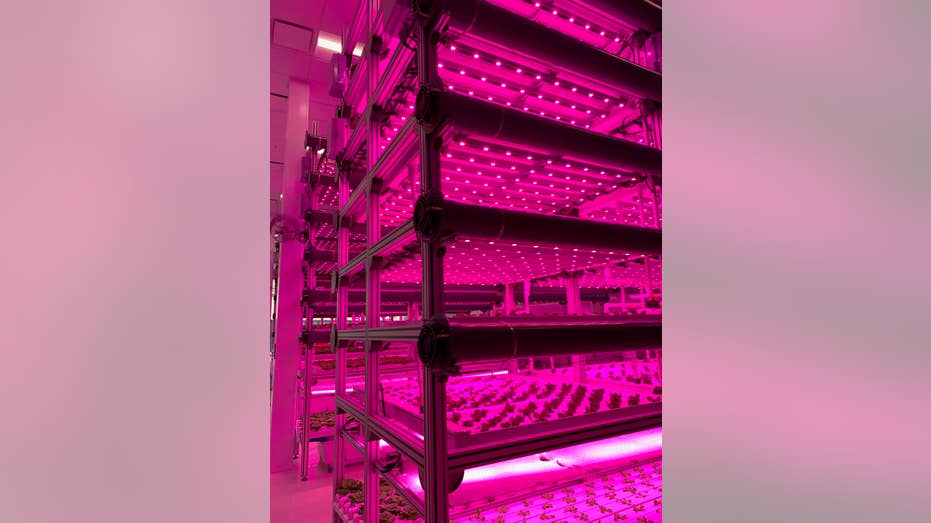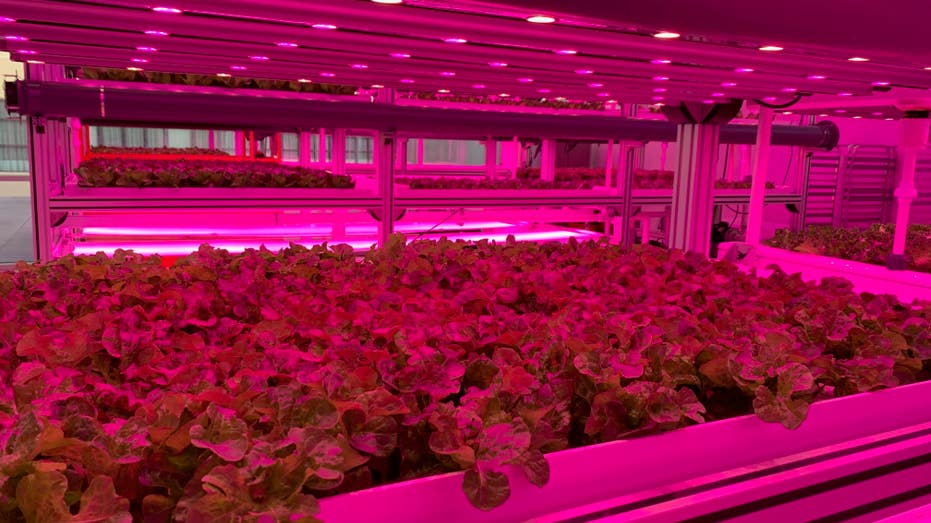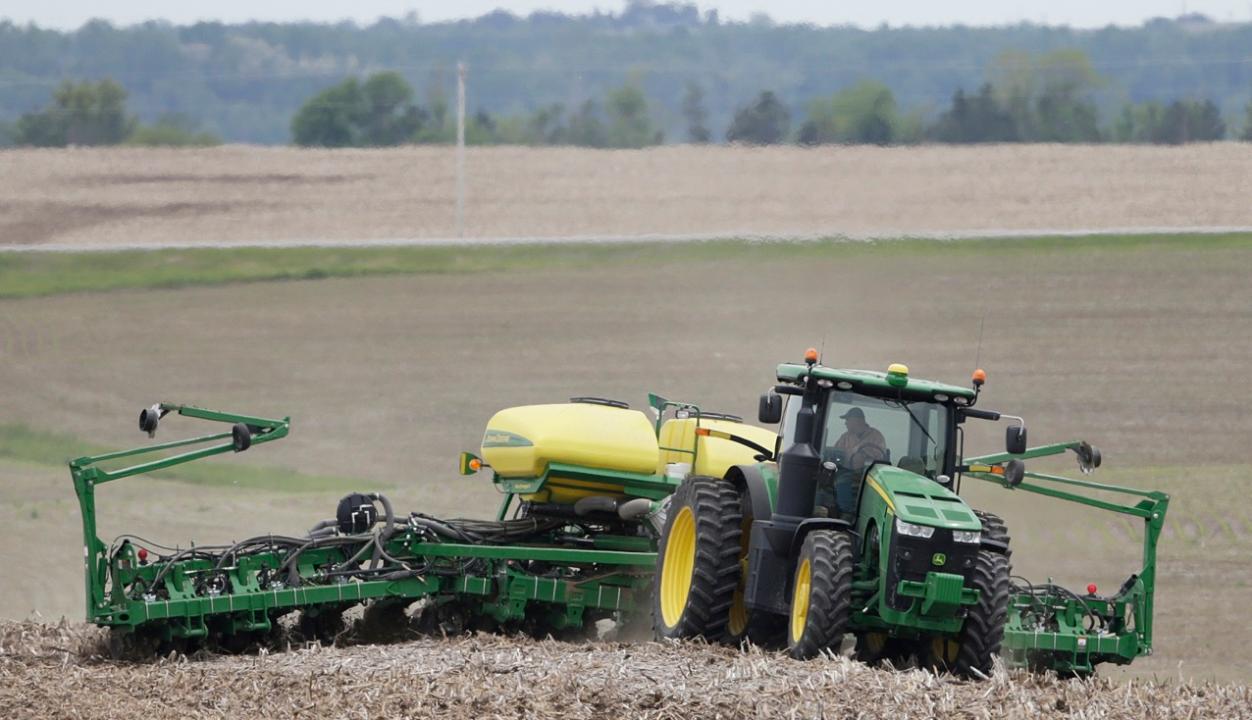How the pandemic has accelerated the next generation of farming
Vertical farming has provided an innovative way to serve customers and ensure clean food
The food service industry is betting big on vertical farming as the pandemic ushers in a heightened awareness of food safety and cleanliness.
Vertical farming, or the practice of cultivating crops in vertically stacked shelves and often in a controlled indoor environment, allows produce to be shipped to grocery stores, restaurants and other dining services in a matter of minutes.
EVEN WITH A STRONG CROP THIS YEAR, US FARMERS ARE SUFFERING
A new report by Allied Market Research shows that the global market for vertical farming crops is projected to reach $1.38 billion by 2027 with a compounded annual growth rate of 26.2% from 2021 to 2027. Last year alone, the industry was estimated to be around $212.4 million.
Amid the trajectory for growth, the coronavirus outbreak has accelerated the demand for fresh and locally grown produce. And as restaurants reopen, vertical farming has provided an innovative way to serve customers and ensure clean food.
“The pandemic has certainly shed light on the fact that everybody is very aware of cleanliness and safety, and food is no exception,” CEO of Kalera Daniel Malechuk told FOX Business. “What vertical farming can offer is something that is local, something that hasn’t been in a journey to get to the end or touched by a significant number of people and something that is grown in a clean room where the product is not subject to harmful elements or exposure.”
TRUMP ANNOUNCES $13B WORTH OF NEW RELIEF FUNDING FOR US FARMERS
Kalera, an indoor vertical farming company with hydroponic technology, is on track for rapid growth, particularly in high dense urban markets. After opening the largest vertical farming facility in Texas, the ag-tech company has plans to expand to Atlanta where it will be the highest production volume vertical farm in the Southeast, as well as Denver by 2021. Aside from its typical operations providing lettuce and microgreens to theme parks and restaurants, Kalera has also entered the grocery space marked by a deal with Publix that went into effect in April.

(Credit: Kalera)
“We love supporting our local growers—whether they are growing in a field or on top of a hotel,” Business Development Director Produce and Floral of Publix Super Markets Curt Epperson told FOX Business. “Our customers really appreciate hydroponically grown leafy greens, not only because they are flavorful but because they are sustainable. We’re excited to see where vertical farming goes in the future. Wherever that is, you can be sure that we’ll be keeping in touch with our local hydroponic farmers, finding out what they’re doing, and talking about how we can work together.”
Hydroponically grown greens emerged in grocery stores prior to COVID-19, but the global health crisis has only accentuated the need to know where food comes from and how it is grown.

(Credit: Kalera)
With technology that doesn't require soil to grow plants and consumes up to 10 times less water compared to traditional soil-based growth, hydroponic systems are not only sustainable but also can be controlled to minimize pesticides and other dangerous chemicals.
Additionally, the minimal transport involved allows produce to reach store shelves without travelling thousands of miles and being exposed to more touchpoints.
Global supply chain disruption has also forced retail chains like Publix to secure produce that does not conflict with restrictions on transportation, which particularly came to light during the first phase of lockdown and with varying state travel mandates.
US FARMERS SCRAMBLE FOR HELP AS COVID-19 SCUTTLES IMMIGRANT WORKFORCE
On top of that, more customers are turning to vertical farming solutions like Kalera for lettuce due to the shortage caused by the California wildfires, where the ash the fields has affected the growth and safety of the traditional product.
And as vertical farming becomes more attractive in light of the pandemic, more cities will tap into these alternative methods, according to Kalera’s Daniel Malechuk.
“What Kalera is able to do is to offer and shed new light on farming is the backbone of American society and one of our strengths as a nation,” Malechuk said. And leading the wave of the ag-tech revolution is what vertical farming companies like Kalera are doing.”




















